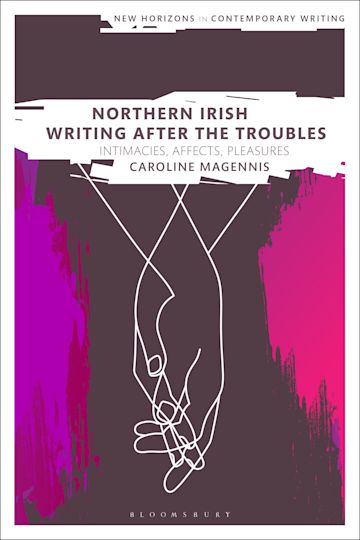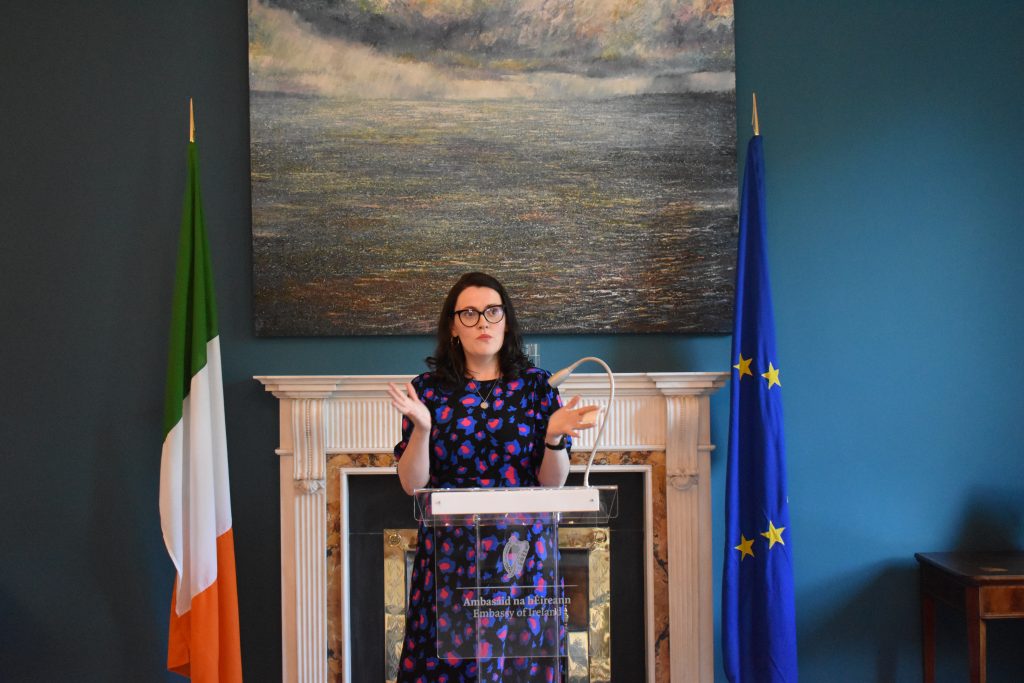Dr Caroline Magennis’ book Northern Irish Writing After the Troubles has been named the joint winner of the British Association for Contemporary Literary Studies Monograph Prize. Dr Magennis is a Reader in Twentieth and Twenty-First Century Literature in the English Subject area, and the themes of this book are taught on her popular third year module, Alternative Ulster.
This book explores contemporary Northern Irish fiction and how the ‘post’-conflict period has led writers to a renewed engagement with intimacy and intimate life. Caroline draws on Irish Studies, affect and feminist theory to examine depictions of intimacy, pleasure and the body in this fiction and shows how intimate life in Northern Ireland is being reshaped and re-written.
Featuring short reflective pieces from some of today’s most compelling Northern Irish Writers, including Lucy Caldwell, Jan Carson, Bernie McGill and David Park, this book provides authoritative insights into how a contemporary engagement with intimacy provides us with new ways to understand Northern Irish identity, selfhood and community.
Dr Magennis said of the book: “The writing of this book was supported by a sabbatical from the School of Arts, Media and Creative Technology but also through the endless generosity and support of my colleagues in English. They read drafts, listened to me present my work and offered suggestions that proved invaluable. I also want to thank all the students who have engaged so thoughtfully with Irish literature since I arrived at Salford eight years ago. I am pleased to share the prize with another Irish book – Ian Hickey’s excellent monograph on Heaney, which I regularly use in my teaching.”
The judging panel’s comments included:
“It’s clear from the start that you are in the hands of an expert reader, but also someone who loves these books and can take you deep inside the emotions they convey. There is much here for readers who are completely new to the authors represented here as well as to those already familiar with some of the texts considered.”
The book has been very favourably reviewed in the Irish Studies Review, the Irish University Review and in a forthcoming issue of C21. Dr Deirdre Flynn commented that:
“Throughout the chapters Magennis’s voice is clear, sharp, passionate and unapologetic, and this becomes more than an academic monograph, but an almost autoethnographic journey to reimagine how we read and understand contemporary Northern Irish fiction. Its honesty and intimacy are engaging, as if Magennis is addressing each of us, regaling the reader with stories and analysis that bring the text to life. That is not to say that this is not a rigorous researched monograph, on the contrary. Magennis’ work is without question detailed, thoughtful and measured. But her writing style is accessible, clear, concise, and retains a sense of personality often missing from so many academic monographs.”
Thanks to the University of Salford’s Open Access fund, the book will be freely available in early 2023 but can be bought via No Alibis Bookstore in Belfast.

